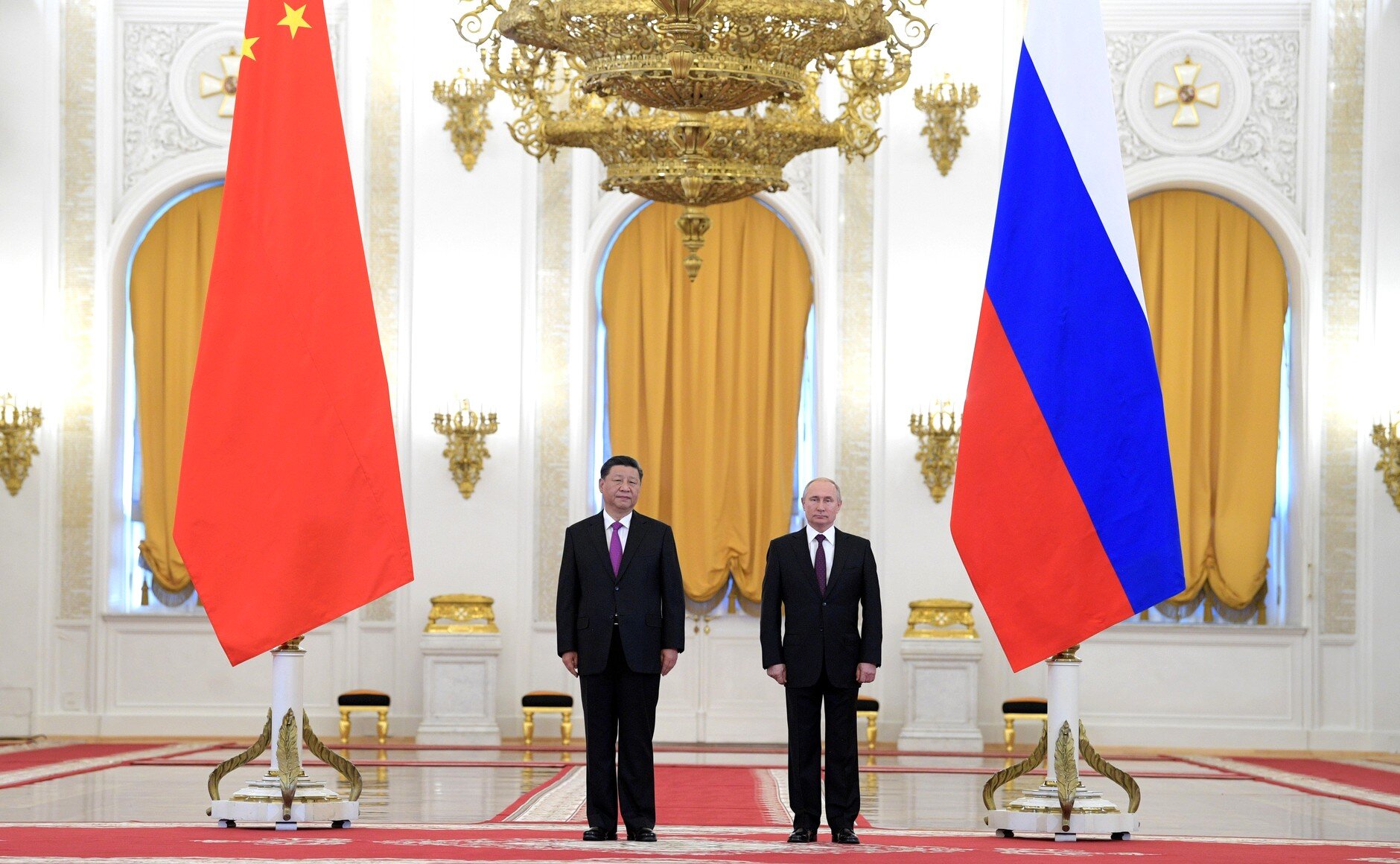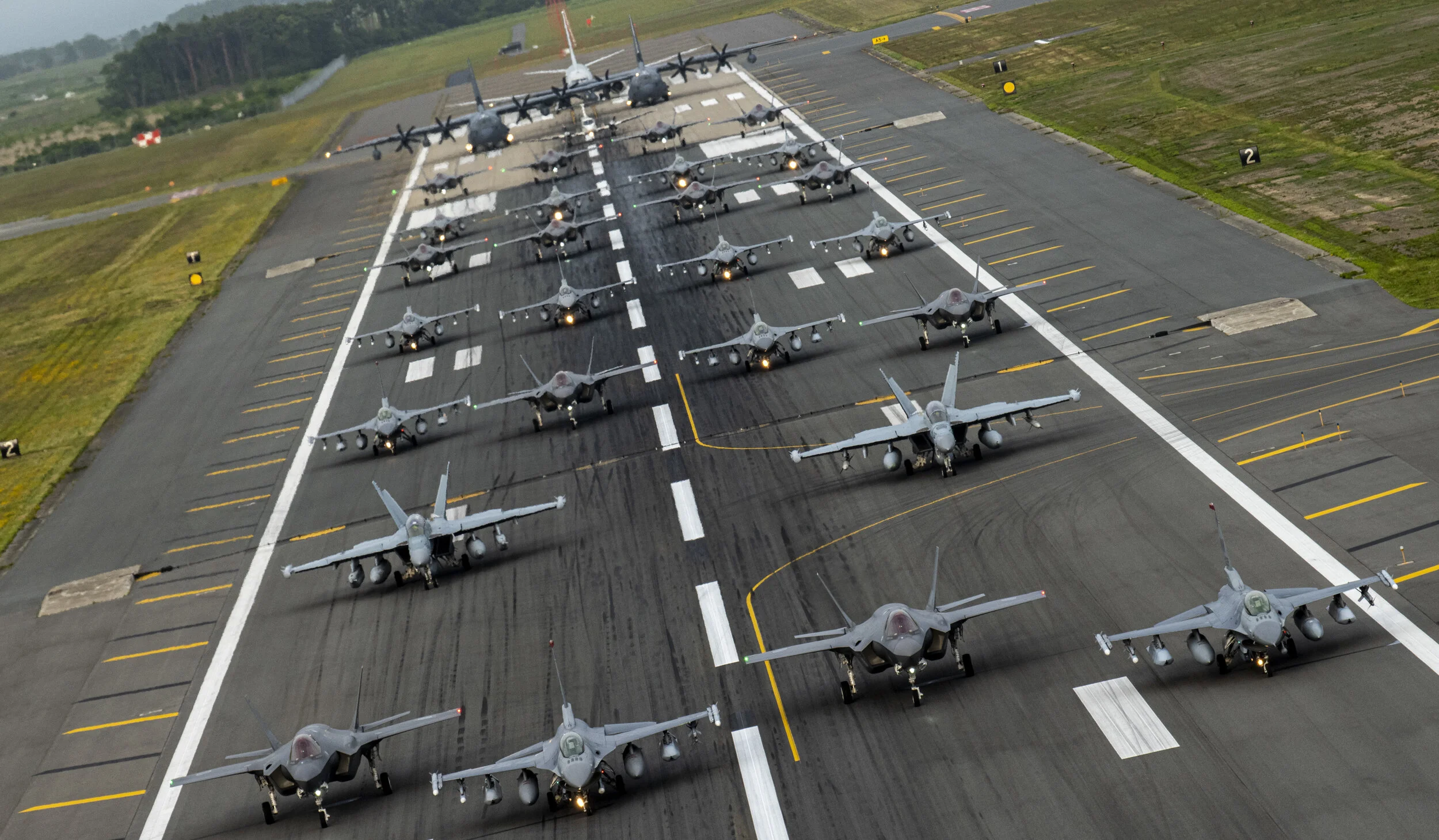The Ukraine war will provide a fillip to U.S. activism, as the Europeans seek inexpensive security insurance from the United States and U.S. policymakers succumb to the temptations of invitational hegemony, if only confined to certain regions. At the same time, the notion of a U.S.-led, rules-based, liberal world order is looking pretty threadbare. That intellectual construct was founded on a unipolar structure of power that no longer exists. Instead, we see the reemergence of the U.S.-led Cold War coalition.
Bases, logistics, and the problem of temptation in the Middle East
The ability to respond rapidly to global trouble sounds good, but it can tempt policymakers to intervene militarily even for non-vital interests. U.S. military bases and logistics hubs in and near the Middle East are the primary examples of this—they make foolish wars too easy to start. Closing bases will therefore make wars more difficult to start, spur public debate about potential interventions, and give diplomacy an opportunity to return as the primary policy option.
To prevent war and secure Ukraine, make Ukraine neutral
A solution to the current crisis centered on the agreed neutrality of Ukraine will serve the United States’ main goals, and Ukraine's and Russia's as well. Neutrality deals have worked well in the past, and solutions that omit Ukrainian neutralization will fail. The stakes at issue in Ukraine are too small to justify a costly conflict. Hence, finding a compromise to resolve things should take priority for the United States.
A new and better security order for Europe
Changes in the global balance of power and in Europe’s security environment demand prevailing U.S.-Europe strategy change fundamentally. What is needed is a reduction in U.S. security commitments on the continent. A drawdown of U.S. obligations will help the U.S. preserve resources and refocus on the Indo-Pacific. It will also benefit Europeans by encouraging them to pursue strategic autonomy. However, while European strategic autonomy is important, a reduction in U.S. commitments in Europe should not be predicated on Europeans’ readiness to defend themselves.
The folly of a democracy-based grand strategy
Making democracy promotion abroad a centerpiece of U.S. foreign policy is a mistake that counterintuitively harms the ability to spread democracy and advance U.S. interests. China, Russia, and other non-democracies—informed by years of U.S. military and non-military actions—view democracy promotion and regime change as linked threats to regime security. Promoting democracy, outside of serving as an exemplar, is counterproductive since regimes often respond to this outside pressure by suppressing democracy at home and aggressing against U.S. interests.
Phantom Empire: The illusionary nature of U.S. military power
U.S. bases and troops abroad no longer translate into influence, making America’s far-flung garrison a “Phantom Empire.” The refusal of U.S. leaders to countenance drawdowns in most cases removes what leverage U.S. troops might provide over host nations. U.S. commitments in Europe, the Middle East, and East Asia yield example after example of countries whose close defense relationship with the United States does not prevent them from going their own way geopolitically.
Perils of pushing Russia and China together
While much has changed since the Cold War, it remains in the U.S. interest to avoid Russia and China—the only two near-peer, nuclear-armed U.S. competitors—combining their economic and military power. The current U.S. approach of dual containment encourages their cooperation. Mounting a global campaign pitting democracies against autocracies adds to that pressure. The U.S. should focus on reducing tension with Moscow to improve the chances of productive diplomacy and limit incentive for Russia to cooperate with China against the U.S.
Global Posture Review 2021: An opportunity for realism and realignment
The Biden Administration’s forthcoming Global Posture Review—a top-to-bottom examination of all overseas U.S. military bases and deployments—should jumpstart a needed shift in U.S. strategic thinking away from the leftover assumptions of the Cold War and the War on Terror. Through balancing and burden sharing in Asia, major troop reductions in Europe and the Middle East, and limiting presence deployments to preserve military readiness, the United States can realign its military posture to sustainably confront the challenges ahead.
“Great power competition” as an anachronism
Today, “great power competition” is too often invoked by advocates of a more militarily assertive foreign policy. The phrase represents a view of the world that is to a great extent zero-sum, in which the U.S. must constantly confront China and Russia abroad. This view is dangerously outdated; changes in the international system such as nuclear weapons and the end of territorial expansion mean that the great powers should move toward more cooperative relations.
U.S. foreign policy priorities for the next four years
The next four years are an opportunity for the U.S. to pursue a new, more realistic foreign policy. In addition to the urgent task of ending endless wars, the U.S. should focus on narrow missions in the Middle East to thwart anti-U.S. terror threats. In Europe, the U.S. should shift burdens to NATO members. And in East Asia, it should encourage allies to invest in defensive capabilities to strengthen deterrence. In all, abandoning the failed status quo in favor of a foreign policy based on restraint will mean a stronger America with more security at less cost and risk.
Restraint: A post-COVID-19 U.S. national security strategy
The COVID-19 pandemic and efforts to manage it ravaged the U.S. economy and government finances, raising demand for domestic spending, cutting revenue, and increasing debt. U.S. grand strategy—long overly ambitious—should be restrained to manage these budgetary pressures. Domestic needs should take greater priority because the U.S. is fundamentally secure. Restraint prioritizes vital interests, abandons peripheral missions, shifts the burden of securing other regions to allies, and ends military overstretch—it provides more security at lower cost and aids the difficult task of domestic rebuilding.
















